History’s Specter
The impossible story of communism.
The Impossible Story of Communism
How do you tell the history of a global movement in all its hope and contradiction?
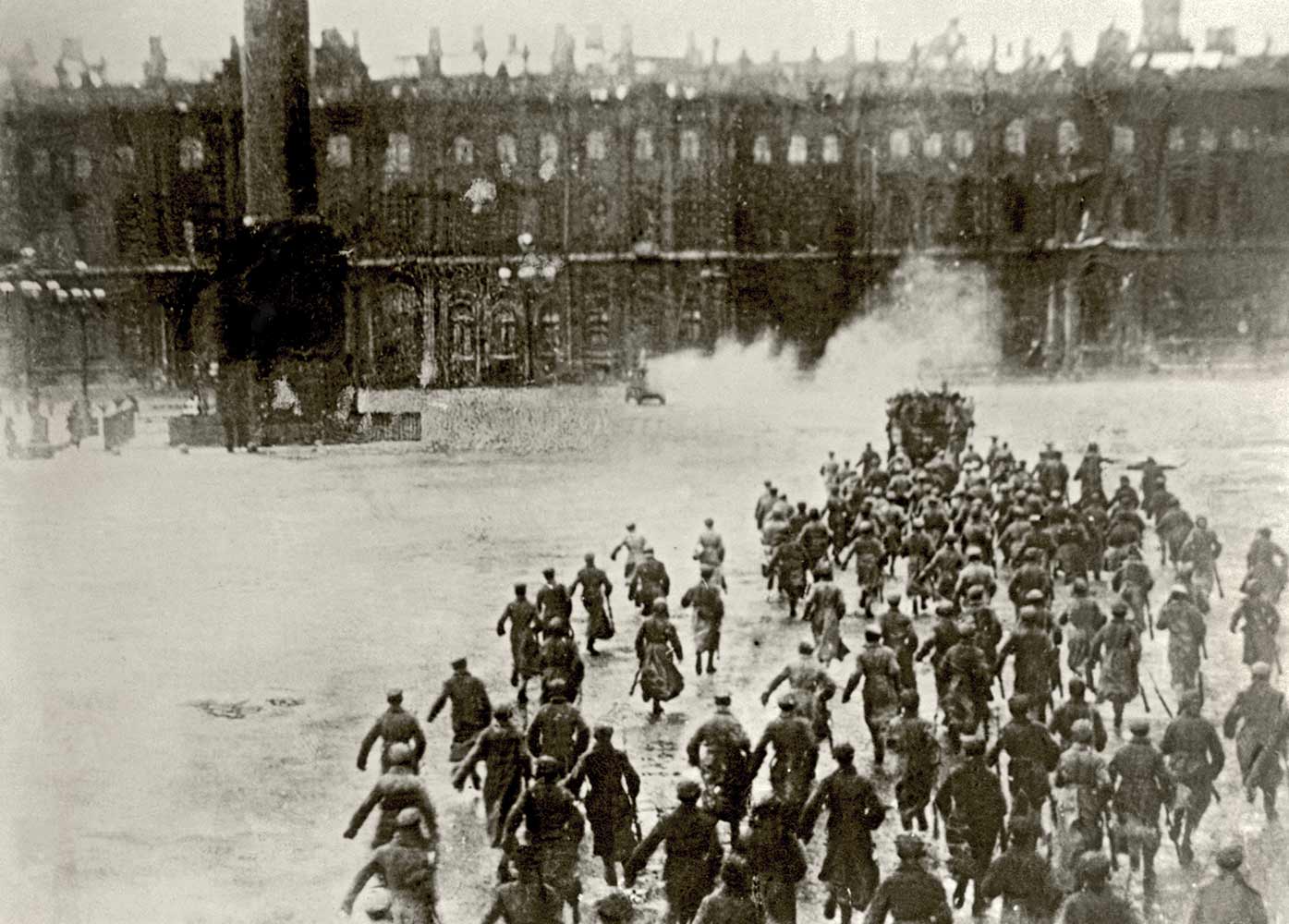
The story of communism is one of the greatest tragedies in modern history. The movement grew, above all, out of horror at the terrible human toll of early capitalism. Out of that horror came hope for a better, more just future as well as a theory explaining how this future would arrive. As Karl Marx and Friedrich Engels explained in their 1848 Manifesto of the Communist Party, capitalist systems in the world’s most highly industrialized states would not only grow corrupt and exhausted as they matured and expanded; they would also, as they forced more and more workers to sell their labor for a wage, create their own gravediggers: a proletariat capable of rising up and establishing a new social order.
Books in review
To Overthrow the World: The Rise and Fall and Rise of Communism
Buy this bookIn the decades after The Communist Manifesto appeared, a plethora of organizations—from electoral parties to workingmen’s leagues to secret societies and terrorist groups—took shape, committed to making the theory a reality. Modern socialist as well as communist movements trace their descent from them. In two successive workers’ internationals, as well as in newspapers, party meetings, universities, private homes, and a thousand grubby cafés, communists took part in fierce, chaotic debates about how to achieve their goals.
But the actual communist regimes that came into being in the 20th century violated the theory, silenced the debates, betrayed the hope, and never achieved the goals. Industrial workers did not seize power in the advanced capitalist states. Instead, in the most important cases, groups of ruthless militants seized power in heavily agrarian states driven to collapse by world war—above all, Russia in 1917 and China in 1949. Then, facing opposition from without and division from within, they resorted to dictatorship, terror, and ultimately mass murder to impose their vision of the future by force.
Yet the hope did not immediately expire, and around the globe millions continued to rally to the communist cause and believe in its promise, even as millions of others suffered and perished at the hands of communists. But eventually, little was left of the communist states but cumbersome, repressive bureaucracies that could neither compete with capitalist economies nor keep the allegiance of their own populations. In the end, they either collapsed under their own weight (as in Europe) or made unholy bargains with capitalism so that their leaders could remain in charge (as in Asia). Today, 107 years after the first great communist revolution, the country in which it took place has become a corrupt, aggressive, quasi-fascist dictatorship. Other remnants of communist power include the strange, pharaonic totalitarianism of North Korea, the repressive state capitalism of China and Vietnam, and a desperate Cuba bending under the weight of its own corrupt elite and the long, cruel US embargo. No one who still hopes to counteract the enormous damage that unfettered capitalism continues to wreak upon the world can afford to overlook or explain away this somber and dispiriting record.
Making sense of the immense, complex, and gripping story of communism in its full dimensions requires a rare combination of expertise and skills. Historians who want to tell the story need to grasp the intellectual contexts in which communist ideas first developed. They need a deep command of global history and a willingness to learn as much as possible about the many different localities around the world in which the communist story has played out, not to mention the many different social strata. Their work, ideally, should give a sense of what communism has meant to European intellectuals and Asian guerrillas, to Cuban bureaucrats and Uzbek factory workers, to American students and to prisoners in the gulag, and much more. They need the sympathy to show what attracted people to communism, but also the distance to judge communist actions dispassionately. The excellent, three-volume Cambridge History of Communism does a great deal of this work, but it is a specialist-edited collection with dozens of individual authors and makes no claims to narrative coherence. To put all of these elements together in a single volume would require an author with encyclopedic knowledge and exceptional storytelling skills.
Is such a history even possible? The British political scientist Archie Brown’s lively The Rise and Fall of Communism (2009) has probably come the closest of any serious study written since the fall of the USSR. While Brown, who advised Margaret Thatcher on the Soviet Union, had little sympathy for communism, he knew the Soviet Union well and offered a fluid narrative history of the principal communist regimes as well as vivid pen-portraits of individual leaders and militants. There were significant gaps as well. Brown had relatively little on the history of communist ideas or on social and economic life in the communist states, and he compressed many important episodes into a handful of pages to keep the book to a manageable length.
Sean McMeekin’s To Overthrow the World: The Rise and Fall and Rise of Communism regrettably falls much farther from the mark. McMeekin is a veteran historian of Russia and the Soviet Union, and his admirable familiarity with the Soviet archives is on full display here. But for years, his animus toward Soviet communism has seriously distorted his understanding of the subject, leading him to portray Soviet leaders as one-dimensional, conspiratorial, power-hungry villains and to give very little sense of what might have driven ordinary people to support them. His 2017 book The Russian Revolution: A New History strained the evidence to depict czarist Russia as a fundamentally healthy regime whose subjects had little reason to rebel against it. (It also contained a bizarre swipe at Bernie Sanders as a latter-day Bolshevik.) His 2021 book Stalin’s War came close to portraying Churchill and Roosevelt as dupes who saved the USSR with copious wartime aid when they might have done better to help overthrow it.
Appearing just three years later, McMeekin’s new book reprises large chunks of his earlier ones, shows many signs of haste, and, in a wild conclusion that sounds like Elon Musk on a bad day, falls into conspiracy theorizing. Readers who assume that the book’s subtitle, “The Rise and Fall and Rise of Communism,” signals an appreciation of contemporary radical movements for social justice will meet with severe disappointment. That final “rise” refers to McMeekin’s belief that the “Chinese Communist model of statist governance and social life” is now taking over the Western world. He speaks of “modern-day thought commissars” and compares the “COVID unvaccinated” and “other dissidents,” including far-right British nationalist Nigel Farage, to victims of Chinese state repression. He warns that a grim fate now awaits anyone who defies “the approved consensus of Western social and governing elites on…’climate change’ [note the scare quotes], immigration, race, sexual orientation, or gender identification.” It is difficult to take seriously a book by someone who has fallen so deeply into this particular rabbit hole, and I can’t help but wonder how Basic Books let these exhalations from the Twitter swamp appear under its imprint.
Mercifully, McMeekin manages to keep the Muskian notes out of the bulk of his text, but it suffers from other problems. To squeeze his entire history of world communism into 458 pages (160 pages less than Archie Brown’s already terse study), he has adopted a largely top-down narrative approach, centered on leadership cadres, that rarely rises above superficiality. After a quick, textbook-style canter through the French Revolution and the early utopian socialists, McMeekin devotes a caustic 45 pages to Karl Marx, whom he credits with a “doctrinaire and eccentric worldview.” He spends 20 more pages trying to untangle the complex politics of the Second International, its exclusion of anarchists, and its ultimate collapse when the workers of the world failed to unite at the start of World War I but instead rallied to their national causes. It is at this point that he arrives, with visible relief, at his area of genuine expertise—the Russian Revolution—and devotes half the rest of the book to the USSR up through Stalin’s death in 1953. The final section largely tacks back and forth between the USSR and communist China, leading to the coda about how we are all falling victim to “the China model of Communist statist surveillance.”
McMeekin is at his best when he’s explaining how communists consolidated their power in Russia and China. In his chapters on Russia, for instance, he uses archival material to give a vivid account of how Lenin and the Bolsheviks took over Russian institutions, with particular emphasis on the massive confiscation of private property, including especially in the banking sector. Joseph Stalin’s early exploits robbing banks for the Communist Party in Georgia turned out to be a prelude to what amounted, in one sense, to the largest set of bank robberies in history, with Bolshevik officials often literally walking into banks, forcing the vaults open, and taking the contents. McMeekin gives a similarly strong narrative account of Chinese collectivization after the communist triumph in 1949. He explains, for instance, how party cadres scoured the countryside for every possible source of fertilizer to increase crop yields, leading to the party boss in Sichuan declaring, “Even shit has to be collectivized!”
The rest of the book, unfortunately, does not live up to these chapters and adds little to Brown’s earlier history. Nuance and complexity are the first victims. To take one example, the story of how Fidel Castro’s Cuba moved into the Soviet orbit is a complex one, involving such matters as pressure from ordinary Cubans to gain control of natural resources after Castro took power and a long series of miscalculations and overreactions by the American government. McMeekin bases his three paragraphs on the subject almost entirely on Soviet sources and therefore makes it largely a story of how the Soviets cleverly lured Castro into their camp.
The final chapters are especially uneven, with McMeekin devoting five pages to the doping of athletes in the Eastern bloc but just three sentences to the fall of the communist regime in East Germany. In keeping with his narrow focus on the highest echelons of leadership, his account of communism’s collapse in Europe centers almost entirely on the last Soviet leader, Mikhail Gorbachev. Anyone interested in the role of Eastern bloc dissidents, or the innovative alliance between intellectuals and workers in the Polish KOR movement, will find virtually nothing on them here. McMeekin entirely skips over the Czechoslovakian experiment of “socialism with a human face” and its suppression by the Soviet Union in 1968.
One might expect a general history of communism to say something about the enormous impact of communism on cultural life in the 20th century, and to discuss figures like Pablo Picasso, Jean-Paul Sartre, Bertolt Brecht, and Aimé Césaire. One might expect the book to include a sustained analysis of the complex intertwining of communism and nationalism, especially in the Global South, where communism often arrived in the form of national liberation movements (for instance, in Vietnam). One might expect more than a cursory treatment of how communism reshaped gender relations. Although communist regimes could behave with considerable hypocrisy on this subject, in many cases they did guarantee formal equality, open up professions to women, provide access to birth control and abortion, and create childcare systems. For a book written by an American for an American audience, McMeekin might have devoted more than just a single paragraph to communism in the United States—a paragraph, moreover, that deals largely with communist agents infiltrating the US government. He has nothing on the role of communists in the civil rights movement, for instance, or the effects of anti-communism in American society during the Cold War.
McMeekin might well respond to these criticisms by pointing out that he could hardly fit all this material into a relatively short book. And in a sense, he would be right. But this material cannot be carved away from his top-down political narrative so easily. Without it, the history of communism is reduced to little but the actions of ruthless, power-hungry ideological militants and the suffering they inflicted on their societies. But communism could hardly have had such an enormous impact on human history if this was all that it had amounted to. What attracted people to it? What made them ready, not just to kill, but to die for it? What made them ready to accept it, to live their lives according to its premises? If it is impossible to answer these crucial questions adequately in such a short book, then maybe writing a short book wasn’t such a good idea.
In a section on the economy in Stalin’s USSR, McMeekin notes that the “results were promising, at least in material terms.” In addition to providing statistics on GDP growth, he notes the rapid creation of cities like Magnitogorsk, where in the space of only a few years a remote, barren stretch of the Ural Mountains became “the largest iron- and steelworks in the entire world, employing nearly 250,000 people.” In his footnote to this sentence, McMeekin cites the historian Stephen Kotkin’s 1995 study of Magnitogorsk, Magnetic Mountain: Stalinism as a Civilization. It is a pity, though, that he did not do more to emulate the overall approach of what is still the greatest book ever written about a communist regime. Kotkin gave full attention to the dark side of this unprecedented, massive piece of communist social engineering, from the brutality of the living and working conditions in the new city, to the inequalities between workers and communist cadres, to the repressive conformism imposed by the party and the coming of Stalin’s terror. But he also highlighted the utopianism that initially drove the project, the genuine enthusiasm that it generated, for a time, among ordinary Soviet citizens, and also, critically, the way they came to “speak Bolshevik”—to operate within the system and live their lives according to both its written and unwritten rules; to be molded into new sorts of subjects. A keen student of Michel Foucault, Kotkin knew that power does not come merely from the barrel of a gun. To sustain itself, it needs to change the way people think and behave. Any worthwhile history of communism needs to deal with this crucial point.
Popular
“swipe left below to view more authors”Swipe →Too often today, the word “tragedy” is used as a synonym for “atrocity.” But they are not the same thing. An atrocity is a deliberate act of cruelty and evil, while “tragedy” denotes a situation in which terrible things occur for reasons beyond human control. Children dying in a car crash is a tragedy; children dying in a mass shooting is an atrocity. Many, many atrocities have been committed in the name of communism, but despite the impression given by McMeekin’s book, the history of communism as a whole is not an atrocity. It is, instead, a tragedy.
More from The Nation
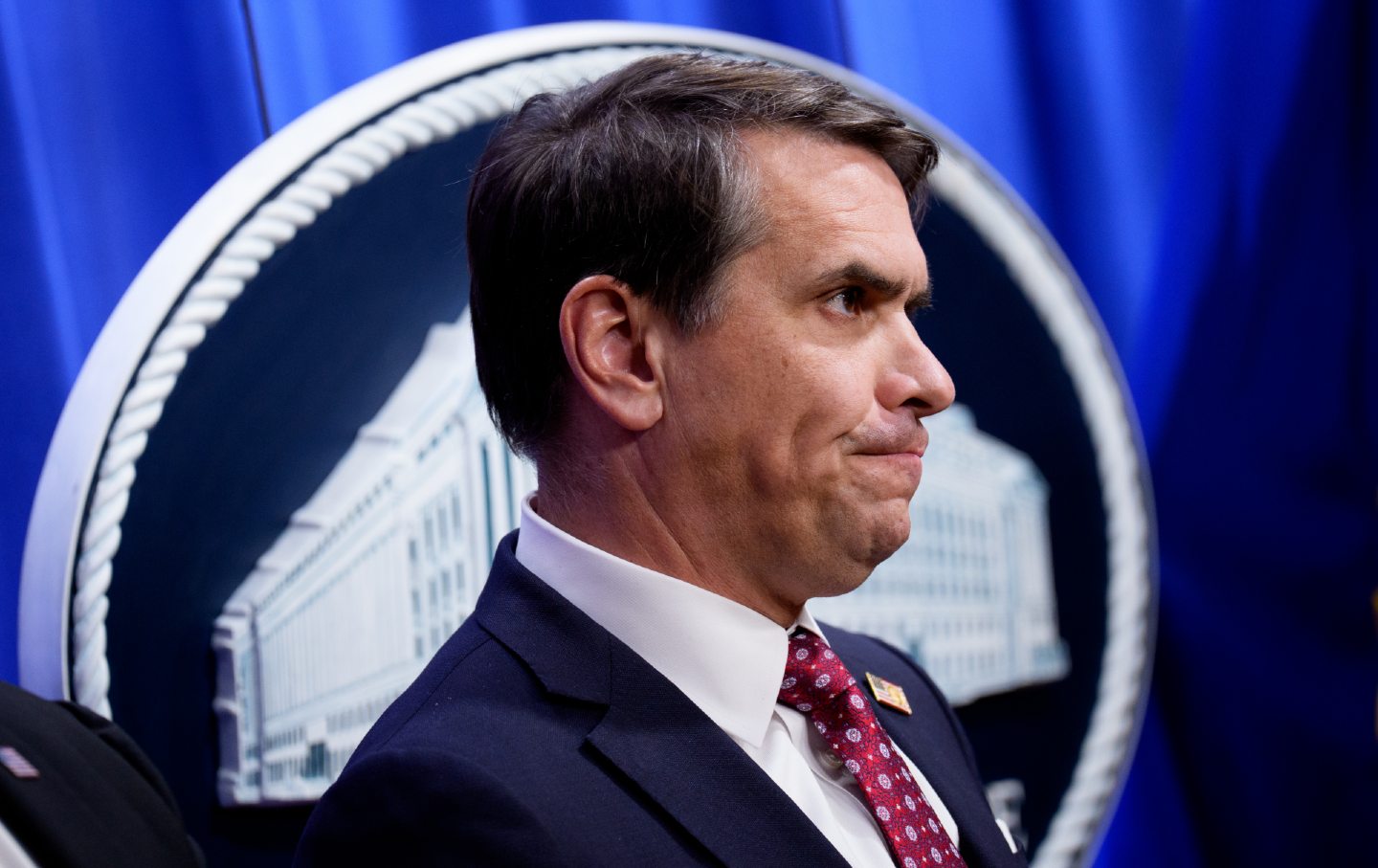
A Trump Administration Official Says It Won’t Investigate the Killing of Renee Good A Trump Administration Official Says It Won’t Investigate the Killing of Renee Good
Deputy Attorney General Todd Blanche makes clear that the Department of Justice won’t look into the death of Renee Good—but that won’t stop Minnesota from investigating.
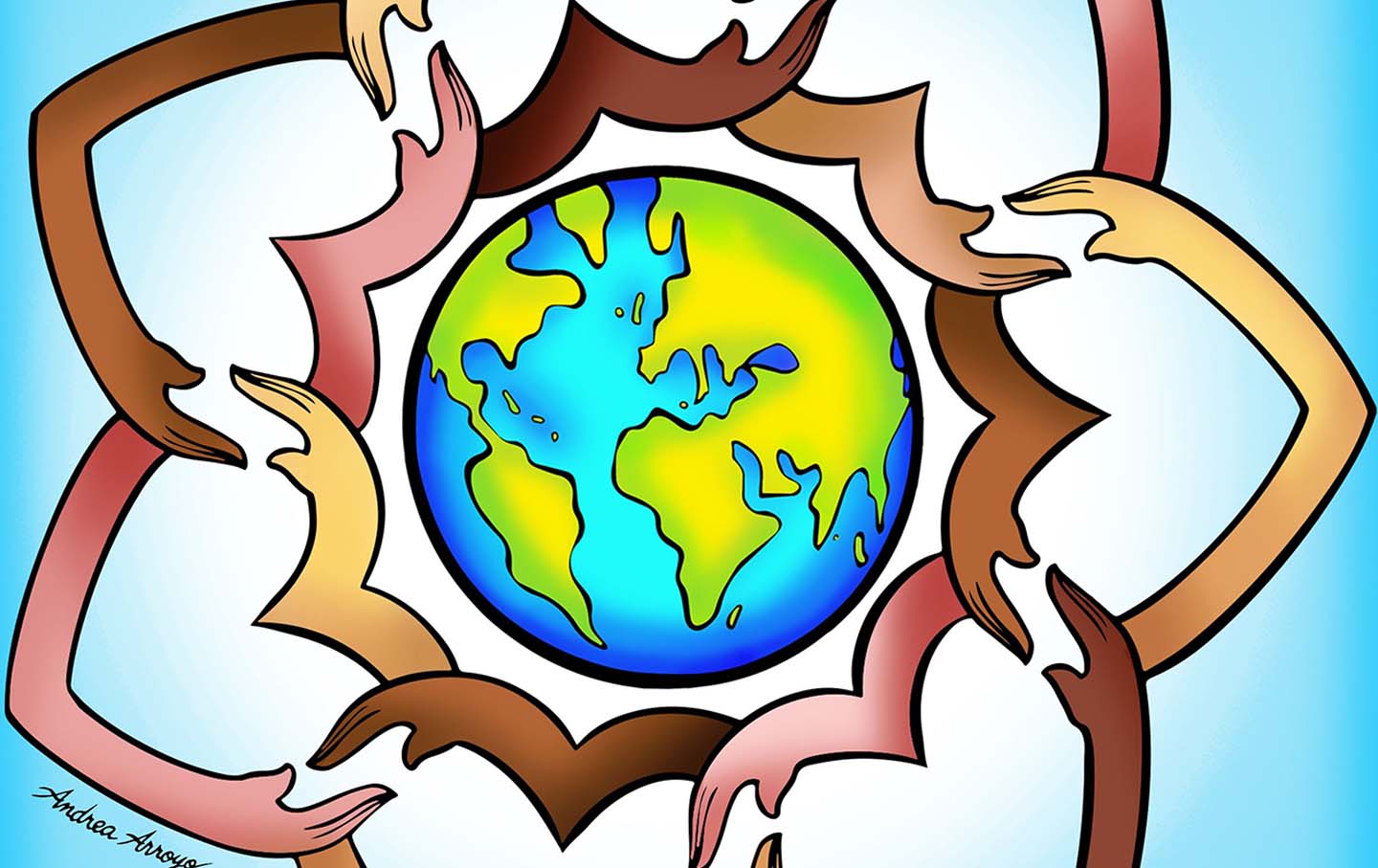
Martin Luther King Jr.’s Dream: Love Against Racism Martin Luther King Jr.’s Dream: Love Against Racism
As Dr. King reminded us, “Hate cannot drive out hate; only love can do that.” His words continue to call us toward justice, compassion, and the power of love to confront racism.
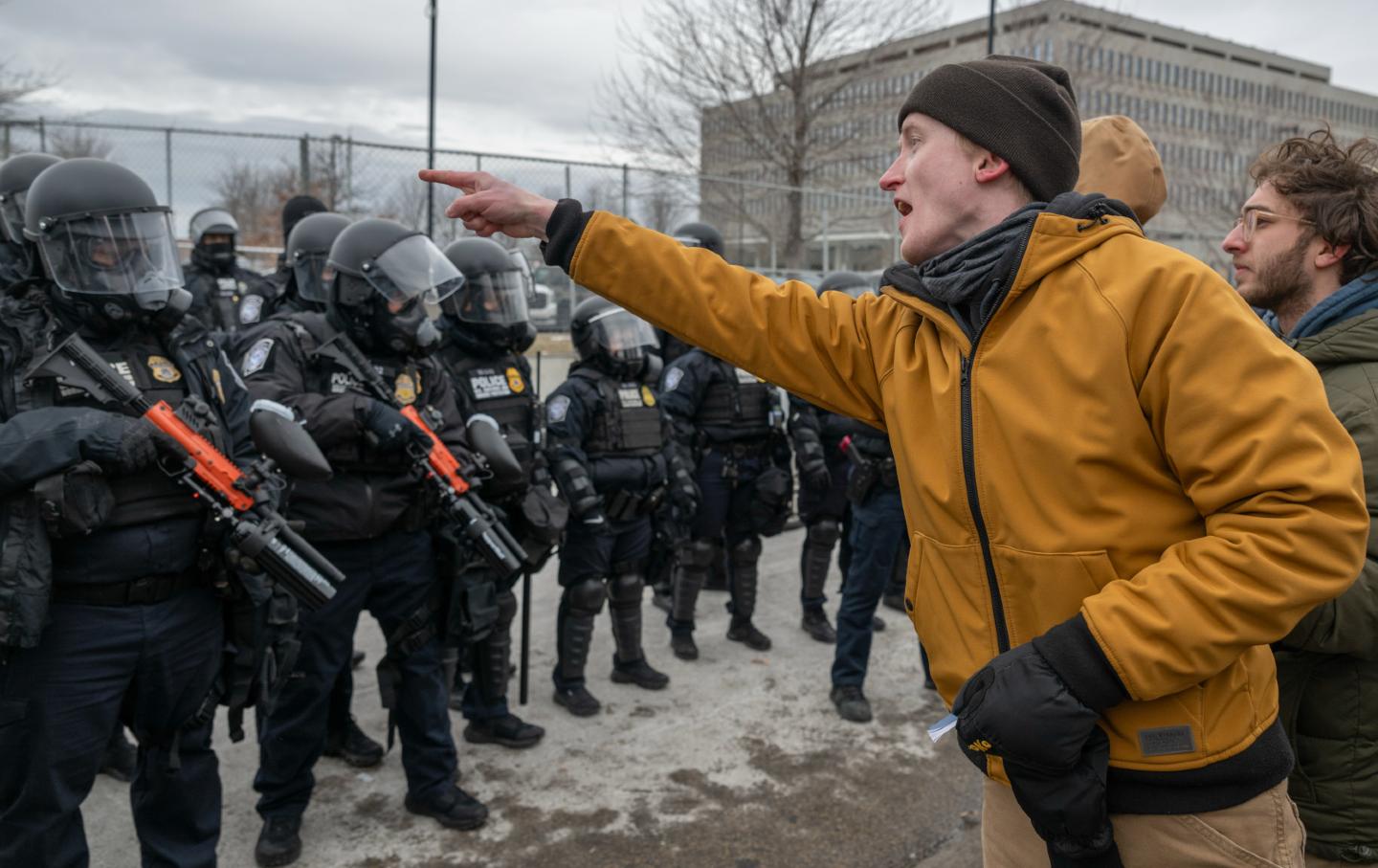
It’s Official: The People, Not the Politicians, Are Leading It’s Official: The People, Not the Politicians, Are Leading
In this week’s Elie V. US, our justice correspondent explores the fecklessness of the Democratic Party, MAGA racism, and fighting despite unwinnable odds.

The Week of Colonial Fever Dreams From a Sundowning Fascist The Week of Colonial Fever Dreams From a Sundowning Fascist
The news was a firehose of stories of authoritarian behavior. We can’t let ourselves drown.
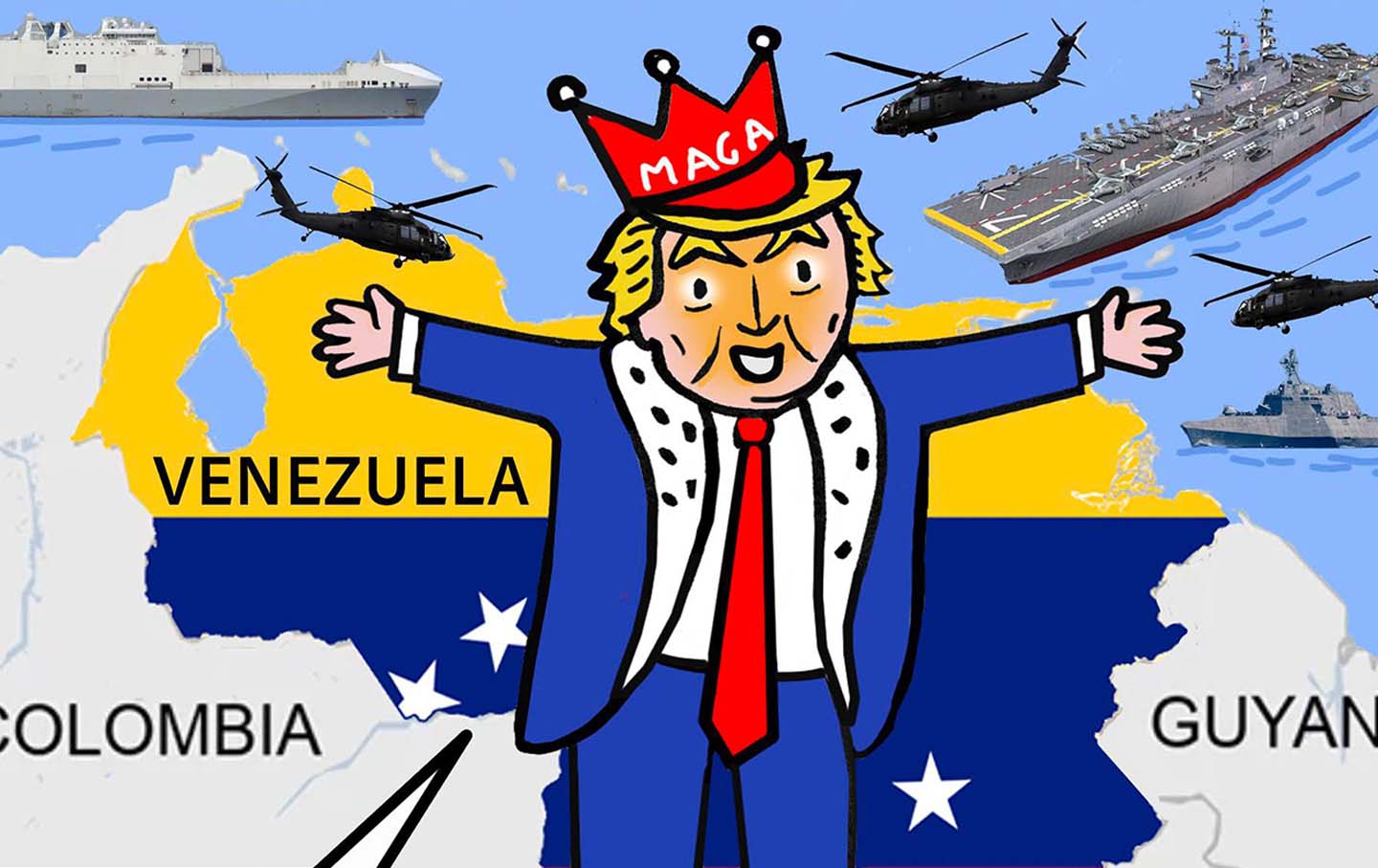
Self-Appointed King of Venezuela Self-Appointed King of Venezuela
The United States attacks Venezuela and captures President Maduro. Trump claims that the US will “run” the country for oil interests.



